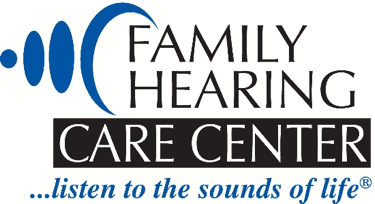
How Diet and Nutrition Affect Hearing Health
Many people don’t realize that what they eat affects their hearing. Good nutrition plays a role in maintaining healthy hearing and preventing hearing loss. Research shows that certain nutrients protect the delicate structures in your inner ear, while poor dietary choices can damage your hearing over time. Let’s explore how your food choices impact your hearing health and what dietary changes might help protect your hearing for years to come.
Food Choices and Hearing Protection
Your ears need specific nutrients to function well and prevent damage. Antioxidants like vitamins A, C, E, zinc, and magnesium protect inner ear cells and are found in fruits, vegetables, nuts, and fish. Omega-3s in salmon and sardines support healthy blood flow to the ears.
On the other hand, diets high in sugar, processed foods, and unhealthy fats can trigger inflammation and damage blood vessels that supply your ears. Excess sugar may also lead to diabetes, which doubles the risk of hearing loss. Choosing nutritious foods today can help protect your hearing as you age.
The Circulation Connection
Healthy blood flow to your inner ear supplies oxygen and nutrients for hearing. Heart-healthy foods like whole grains, lean proteins, and potassium-rich produce (bananas, potatoes, and spinach) support circulation and fluid balance in the ear. A balanced diet also helps regulate blood pressure, protecting delicate ear structures from damage.
In contrast, poor eating habits, especially high-sodium or high-cholesterol diets, can restrict blood flow, depriving the ears of oxygen and risking long-term hearing loss. Supporting cardiovascular health through smart food choices benefits not just your heart but also helps preserve your hearing over time.
Inflammation and Hearing Loss
Chronic inflammation can harm your hearing over time. Anti-inflammatory foods like berries, fatty fish, olive oil, and leafy greens help protect your ears by reducing inflammation and oxidative stress. Studies show people who follow Mediterranean-style diets have lower rates of age-related hearing loss. In contrast, inflammatory foods such as processed meats, refined carbs, and artificial additives can damage the inner ear’s hair cells and nerves, which don’t regenerate.
This makes prevention key. By avoiding inflammatory foods and choosing a healthier diet, you may preserve your hearing and slow age-related decline. Nutrition plays a key role in hearing health.
Vitamins and Minerals for Better Hearing
Vitamins A, C, and E protect ear cells from damage, while folic acid supports new cell growth and may slow age-related hearing loss. Magnesium shields inner ear hair cells from loud noise damage, and zinc boosts immunity to help prevent ear infections.
Deficiencies in folate or vitamin B12 can worsen hearing, cause tinnitus, or increase the risk of noise-induced damage. Older adults and vegetarians may be especially at risk. Eating a balanced diet with nutrient-rich foods supports long-term hearing health by providing the vitamins and minerals your ears need to function well.
Hydration and Hearing
Proper hydration supports the fluid balance in your inner ear, which is important for transmitting sound waves. Water helps maintain the right concentration of electrolytes needed for optimal nerve function in your auditory system. Staying well-hydrated also supports healthy blood circulation to your ears, providing them with nutrients and removing waste products.
Dehydration can make the fluids in your inner ear more concentrated, which may affect how well your ears translate sound vibrations into nerve impulses. Even mild dehydration can temporarily affect your hearing sensitivity and make you more susceptible to ear-related problems. To support your hearing health, aim to drink water throughout the day rather than waiting until you feel thirsty.
Taking Action for Healthier Hearing
Small, lasting changes to your diet can support better hearing health. Eat more colorful fruits, vegetables, fatty fish, nuts, and whole grains. Cut back on processed foods, sugar, and salt. Notice how food affects your hearing, including symptoms like fullness or ringing. Wear ear protection during loud activities and get regular hearing checkups.
Healthy eating habits that benefit your heart and brain also help your ears. If you have concerns about hearing loss, talk with a hearing health professional about nutrition as part of your care. Your ears deserve good nutrition, your future hearing may depend on it.
